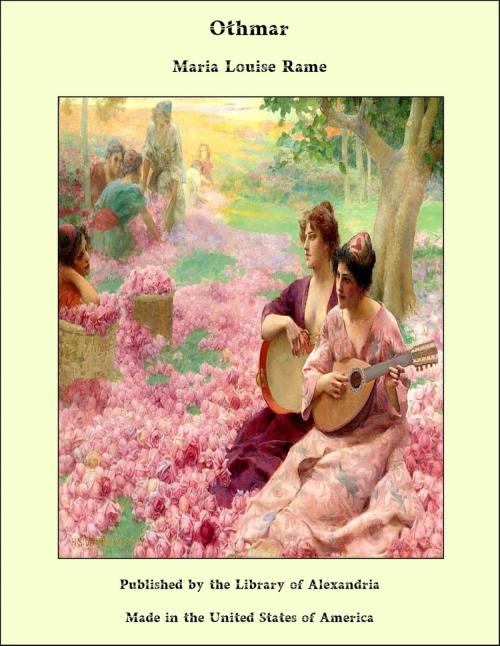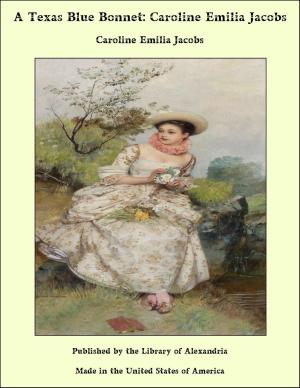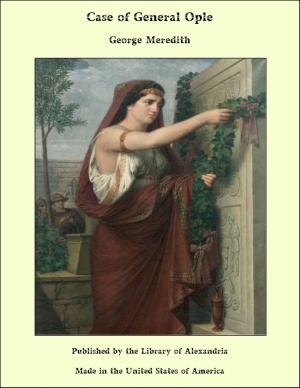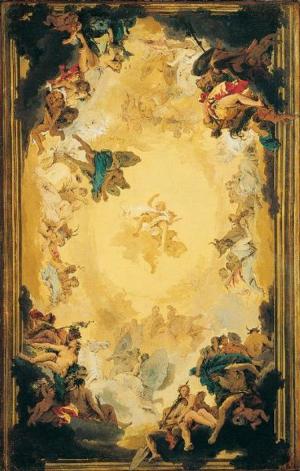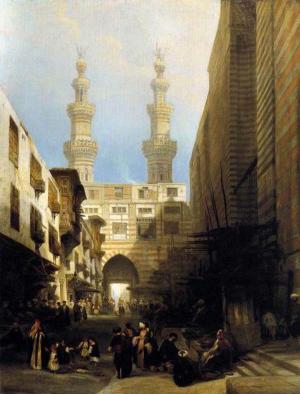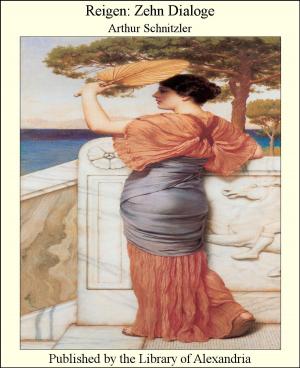| Author: | Maria Louise Rame | ISBN: | 9781465607614 |
| Publisher: | Library of Alexandria | Publication: | March 8, 2015 |
| Imprint: | Language: | English |
| Author: | Maria Louise Rame |
| ISBN: | 9781465607614 |
| Publisher: | Library of Alexandria |
| Publication: | March 8, 2015 |
| Imprint: | |
| Language: | English |
It was a golden August afternoon, towards the close of a day which had been hot, fragrant, full of lovely lights and shadows. Throned on a hill a mighty castle rose, aerial, fantastic, stately, with its colonnades of stone rose-garlanded, and its stone staircases descending into bowers of foliage and foam of flowers. Its steep roofs were as sheets of silver in the sun, its many windows caught the red glow from the west, and its bastions shelved downward to meet smooth-shaven lawns and thickets of oleanders luxuriant with blossom, crimson, white, or blush-colour. In the woods around, the oaks and beeches were heavy with their densest leafage; the deer couched under high canopies of bracken and osmunda; and the wild boars, sunk deep in tangles of wild clematis and beds of meadow-sweet, were too drowsy in the mellow warmth to hear the sounds of human laughter which were wafted to them on the windless air. In the silent sunshiny vine-clad country which stretched around those forests, in 'le pays de rire et de ne rien faire,' from many a steep church-steeple and many a little white chapel on the edge of the great rivers or in the midst of the vast wheat-fields, the vesper-bell was sounding to small townships and tiny hamlets. It was seven o'clock, and the Court of Love was still open; the chamber of council, or throne-room, being a grassy oval, with grassy seats raised around it, like the seats of an amphitheatre; an open space where the forest joined the gardens, with walls, first of clipped bay, and then of dense oak foliage, around it; the turf had been always kept shorn and rolled, and the evergreens always clipped, and a marble fountain in the centre of the grass, of fauns playing with naiads, bore an inscription testifying that, in the summer of the year of grace 1530, the Marguerite des Marguerites had held a Court of Love just there, using those same seats of turf, shadowed by those same oak-boughs. 'Why should we not hold one also? If we have advanced in anything, since the Valois time, it is in the art of intellectual hair-splitting. We ought to be able to argue as many days together as they did. Only, I presume, their advantage was that they meant what they said, and we never or seldom do. They laughed or they sighed, and were sincere in both; but we do neither, we are gouailleurs always, which is not a happy temperament, nor an intellectually productive one.'
It was a golden August afternoon, towards the close of a day which had been hot, fragrant, full of lovely lights and shadows. Throned on a hill a mighty castle rose, aerial, fantastic, stately, with its colonnades of stone rose-garlanded, and its stone staircases descending into bowers of foliage and foam of flowers. Its steep roofs were as sheets of silver in the sun, its many windows caught the red glow from the west, and its bastions shelved downward to meet smooth-shaven lawns and thickets of oleanders luxuriant with blossom, crimson, white, or blush-colour. In the woods around, the oaks and beeches were heavy with their densest leafage; the deer couched under high canopies of bracken and osmunda; and the wild boars, sunk deep in tangles of wild clematis and beds of meadow-sweet, were too drowsy in the mellow warmth to hear the sounds of human laughter which were wafted to them on the windless air. In the silent sunshiny vine-clad country which stretched around those forests, in 'le pays de rire et de ne rien faire,' from many a steep church-steeple and many a little white chapel on the edge of the great rivers or in the midst of the vast wheat-fields, the vesper-bell was sounding to small townships and tiny hamlets. It was seven o'clock, and the Court of Love was still open; the chamber of council, or throne-room, being a grassy oval, with grassy seats raised around it, like the seats of an amphitheatre; an open space where the forest joined the gardens, with walls, first of clipped bay, and then of dense oak foliage, around it; the turf had been always kept shorn and rolled, and the evergreens always clipped, and a marble fountain in the centre of the grass, of fauns playing with naiads, bore an inscription testifying that, in the summer of the year of grace 1530, the Marguerite des Marguerites had held a Court of Love just there, using those same seats of turf, shadowed by those same oak-boughs. 'Why should we not hold one also? If we have advanced in anything, since the Valois time, it is in the art of intellectual hair-splitting. We ought to be able to argue as many days together as they did. Only, I presume, their advantage was that they meant what they said, and we never or seldom do. They laughed or they sighed, and were sincere in both; but we do neither, we are gouailleurs always, which is not a happy temperament, nor an intellectually productive one.'
